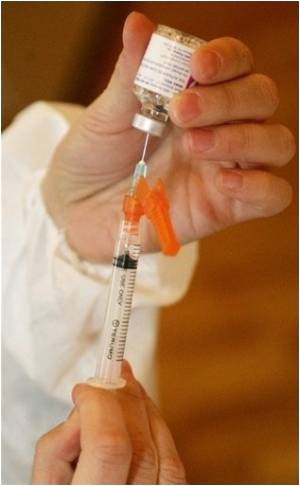
It received unanimous support last month from an 18-member panel of experts who advise the FDA on whether new drugs should be brought to market.
"Victrelis is an important new advance for patients with hepatitis C," said Edward Cox, of the FDA's Center for Drug Evaluation and Research.
"This new medication provides an effective treatment for a serious disease, and offers a greater chance of cure for some patients' hepatitis C infection compared to currently available therapy."
The existing two-drug treatment of pegylated interferon and ribavirin for genotype 1 chronic hepatitis C was approved by US regulators in 1998.
Doctors reviewing studies on the boceprevir last month as part of an FDA advisory panel said it would greatly improve the cure rate for hepatitis C, a liver disease that affects about 180 million people worldwide.
Advertisement
Victrelis was evaluated in a pair of phase III clinical trials with 1,500 adult patients, and both showed that two-thirds of patients who took the three drug combination had no detectable virus in their blood 24 weeks later.
Advertisement
Most people infected with hepatitis C live symptom-free for years, but once it is discovered it is often too late for it to respond to the two-drug treatment.
In the past the disease could be spread through contact with infected blood products, and is still contracted by drug users sharing needles, or straws during the use of cocaine, or by unprotected sex with a sufferer.
Source-AFP














